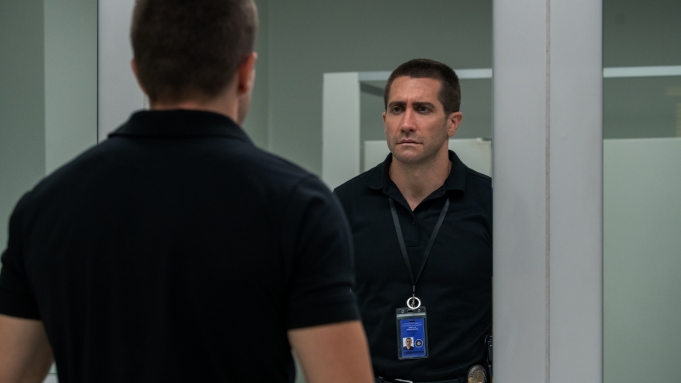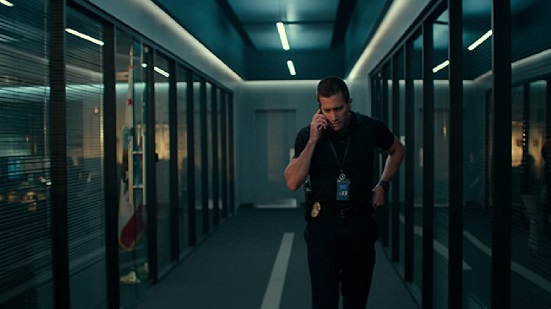

“Broken people save broken people.”
It’s been interesting to watch the movie-making machine contort itself against the backdrop of the government’s atrocious handling of the coronavirus pandemic. I recall my utter disgust when I saw a video of a distraught restaurant owner, prohibited from operating her business (and thus earning a living) because her food service was deemed nonessential. This was after she had spent $80k making it “COVID compliant,” mind you. And yet she was forced to close her doors even while her parking lot was commandeered for a catering company to provide sustenance for a huge Hollywood production that was shooting nearby. There’re several cans of worms within arms reach here, but I mostly digress. It just seems morally questionable that movie studios were given leeway so that the quarantined masses living on forced unemployment could be provided with modern bread and circuses while mom and pops had to suffer. But while the big wigs have forged ahead with their tentpole franchises (which, it should go without saying, are uniformly inessential), other smaller projects have gotten creative. Case in point is Antoine Fuqua’s The Guilty, a slick thriller that manages to hold our attention for 90 minutes despite never leaving the stuffy confines of a Los Angeles 911 call center.
The Guilty boasts a fairly large cast outside of its star, Jake Gyllenhaal—Riley Keough, Peter Sarsgaard, Eli Goree, Ethan Hawke, Da’Vine Joy Randolph, Paul Dano, Bill Burr, among others. But we spend the bulk of our time with only Gyllenhaal in frame. He plays a disgraced LAPD officer named Joe Baylor who is working a night shift at the emergency response center. Aside from Christina Vidal and Adrian Martinez, whose characters work in the office with Joe, the rest of the prominent cast members feature as voices in Joe’s headset and on his smartphone. He’s been stuck at the call center for the last few months due to an incident in the field, with an upcoming court date looming over his every thought. In the intervening months, his wife has left him, he’s lost custody of his daughter, and his home has been a tiny Airbnb in which he cannot find restful sleep.

The film opens as Joe nears the end of a high-intensity night shift as SoCal wildfires swamp emergency responders and obfuscate even the most routine tasks in the field. After dealing with several ordinary calls, including one from a man (Paul Dano) who does not want to admit that he’s been robbed by a prostitute, the tension ramps up when he receives a 911 call from Emily (Keough). As she begins whispering to him in a sweet voice, as if speaking to a child, he deduces that she has dialed the number by mistake. But just before ending the call to free up the line, he realizes that she did indeed mean to call 911 and is using the pretext of speaking to her child so that she can use the phone while in the presence of her abductor. (Similar 911 calls have been made in real life.) Joe momentarily breaks out of his funk and jots down every detail he can obtain by asking yes or no questions, then begins barking orders at the California Highway Patrol dispatcher (Randolph), various CHP officers, his former partner Rick (Goree), and calling in a favor from his former sergeant (Hawke). He even calls Emily’s house and gleans clues from a conversation with her daughter Abby (Christiana Montoya). It is clear that Joe sees his role in saving Emily as a path to redemption, even if it means jeopardizing his career and relationships and breaking any number of protocols.

Gyllenhaal’s performance is appropriately showy, the high-stakes situation justifying his combustible antics and emotional breakdowns. He’s one of the few working actors today who can pull off such a wide range of emotional output—manic, confused, angry, distressed, charming. He bounces back and forth every few minutes as he frantically mans the 911 line and his cellphone. Aside from opening and closing shots that drift over the burning city and a brief, out-of-focus traffic stop that Joe imagines as he listens through the patrol officer’s intercom, the entirety of the film takes place inside three rooms at the call center: a large room where several operators sit at workstations with a bazillion monitors each, a small hallway, and a private, unused room with a vacant work station where Joe retreats when he wants to bend the rules out of his supervisor’s earshot.
I must rely on others who report that the film’s plot, while moved to LA and slightly contextualized to a new environment, is mostly faithful to the Danish original (which bears the title Den Skyldige). I must wonder if the prototype is as paper thin and lacking in subtlety as the American remake, which was penned by Nic Pizzolatto and telegraphs that a huge plot twist is incoming. The tension is undercut as we patiently wait for it and when it comes it’s heinously cruel. Though the script is underwhelming, contains some unaddressed holes, and often borders on exploitative, it’s directed with verve by Fuqua, who keeps things taut and suspenseful and never gives us a chance to stop biting our nails as things play out in almost-real-time.
It may be a mere showcase for Gyllenhaal, but it is so effectively staged that by the time the credits roll you’ll think you’ve witnessed a pretty decent action movie despite having simply watched Jake Gyllenhaal ululating from a swivel chair.